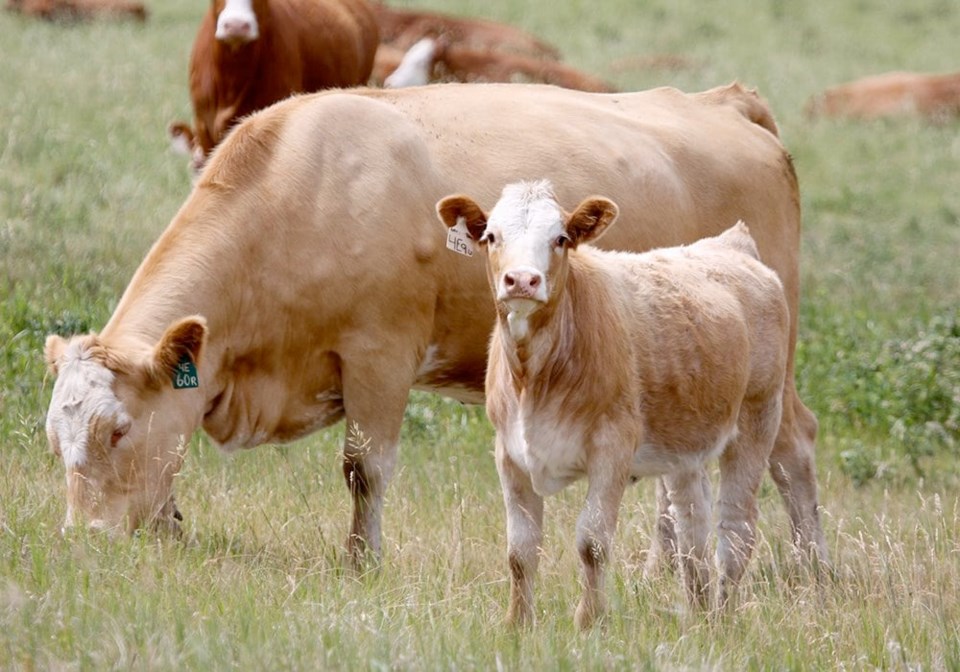WESTERN PRODUCER — A project to increase the use of data in cow-calf operation decision-making has brought together organizations and researchers from across the sector.
The Data Literacy for Cow-Calf Producers project aims to give farmers and ranchers the chance to discuss best practices and learn from experts and peers about how to use data to make better business decisions.
Data management has varied adoption in the cow-calf sector.
“It’s all over the map,” says Alan Hall, executive director of the Agricultural Research and Extension Council of Alberta (ARECA), which provides services to the 12 forage and applied research associations around the province.
“Some are tracking a lot of data, like how many animals they get out on pasture over a period of time, so they get some productivity and performance data.
“There’s still a fair chunk of the cow-calf operations that don’t weigh the calves when they come off (pasture).”
Barriers to the adoption of more data recording and analysis in the cow-calf sector include the extra work that recording data can take, says Hall. There also can be challenges with service to help with software and troubleshooting hardware and data services such as internet and cellular connection.
“The technologies are there, but it’s one thing to have the technology and it is quite another to make it work seamlessly,” says Hall.
The project will accept 30 cow-calf producers from Alberta. Two workshops bookend the program. The first is June 13 and the second is Nov. 28. Both will be held in Red Deer.
Attendees will have to attend both sessions.
In between sessions, producers can go back to their farms and work on what they learned, but they will also be part of a six-month mentorship program, in which they will be able to virtually connect with the rest of their cohort and experts.
Susan Markus will be teaching part of the course, including looking at the metrics producers can measure and evaluate that will have an impact on their farm or ranch.
The real win for producers is to be able to find something in the data that helps make basic jobs more efficient.
“If people took a look at some of this data, they maybe don’t realize what more it can do for them,” says Markus, a livestock research scientist with Alberta’s Results Driven Agriculture Research. She’s based at Lakeland College.
Collecting data is one step of the process, says Markus, but interpreting the data is another, and that’s really the focus of the project.
“It’s one thing to tell people to keep better records, but if you do nothing with it, what good was that?”
The technology for data collection on beef operations is available, says Markus, particularly because cattle are required to have RFID tags that can be read by wands or panels. As well, Bluetooth scales can automate the recording of data onto digital devices.
“But you have to do a really good job with your basic information, know how you stack up against industry benchmarks, to know what areas you’re going to focus on, where you’re going to change,” she says.
The next step is to match production data to financial data ,and Agri-Food Management Excellence will be involved in the program to help producers make that connection.
Program partners include Olds College, Lakeland College, EMILI, Agri-Food Management Excellence, RDAR and the Canadian Cattle Identification Agency. It is being co-ordinated by the University of Calgary’s Simpson Centre in the School of Public Policy.
Funding comes from the Alberta government’s April announcement of $1.2 million in funding for the Alberta Digitalization Agriculture Program run by the Simpson Centre.
Many other organizations are involved in helping to promote the program, such as ARECA.
“We see this as a pilot to get started, but this could well lead to some longer-term kinds of efforts,” Hall says.
“Bringing some of this type of data collection and data analysis that producers have can help them sharpen their business decisions.”

